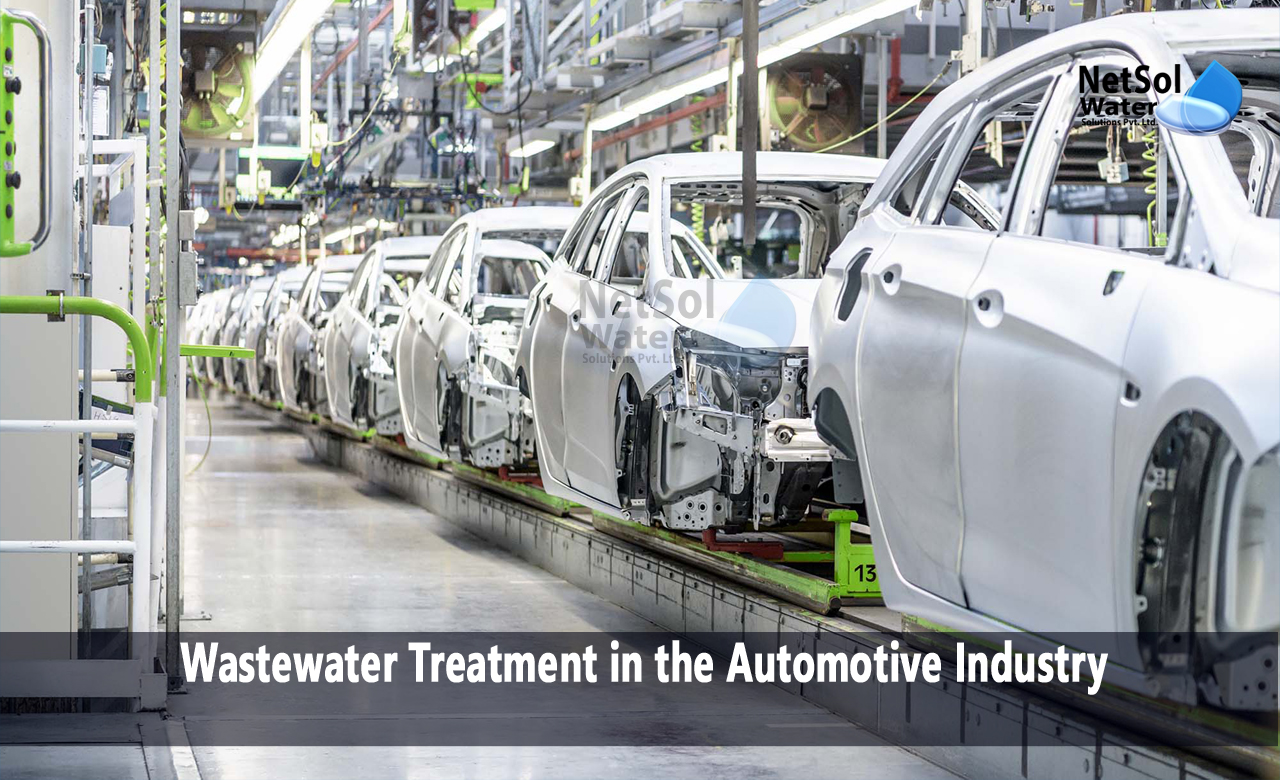What are the methods of wastewater treatment in Automotive Industry?
The automotive industry has long been associated with environmental challenges, but it's also been making significant strides toward more sustainable practices in recent years. One of the key areas where the industry has been focusing its efforts is wastewater treatment. In this blog, we'll explore the eco-friendly wastewater treatment practices adopted by the automotive industry and their significance in reducing environmental impact.
· Advanced Wastewater Treatment Technologies:
The automotive industry has been increasingly investing in advanced wastewater treatment technologies to ensure that the effluent released from their manufacturing facilities is of the highest quality. Some of these technologies include:
A. Membrane Bioreactors (MBRs): MBRs combine biological treatment with membrane filtration to produce treated water that is almost free of solids and contaminants. This technology enables the recycling of treated water within the manufacturing process, reducing freshwater intake and wastewater discharge.
B. Reverse Osmosis (RO): RO is employed to remove dissolved salts and organic compounds from wastewater, making it suitable for reuse in various processes, such as cooling or painting.
C. Ultrafiltration (UF): UF technology is used to filter out suspended solids, microorganisms, and some organic contaminants from wastewater, ensuring the quality of the treated water.
D. Electrocoagulation: This electrochemical method employs electrical current to destabilize contaminants in the wastewater, facilitating their separation and removal. It is particularly effective in treating oily wastewater generated during automotive manufacturing.
· Closed-Loop Water Recycling Systems:
Many automotive manufacturers have implemented closed-loop water recycling systems that minimize the need for freshwater intake and reduce wastewater discharge. In a closed-loop system, water is treated on-site and then reused within the manufacturing process, significantly reducing water consumption and wastewater generation.
Green Infrastructure:
Green infrastructure solutions, such as constructed wetlands and vegetated swales, are employed to treat stormwater runoff and process some non-toxic wastewater. These natural systems help filter out pollutants, reduce the risk of soil erosion, and enhance the aesthetics of the manufacturing facility.
Zero Liquid Discharge (ZLD) Systems:
Some automotive plants have adopted ZLD systems, which aim to recover and reuse nearly all water from their wastewater. These systems treat wastewater to the point where there is virtually no liquid discharge, significantly reducing the environmental impact.
Phytoremediation:
Phytoremediation is the use of plants to treat contaminated water. Some automotive facilities use specially selected plant species to take up and accumulate heavy metals and other pollutants from wastewater, which can then be harvested and disposed of properly.
Sustainable Chemical Management:
Many automotive companies have adopted sustainable chemical management practices to minimize the use of hazardous chemicals and toxic substances in their manufacturing processes. By using eco-friendly chemicals and reducing their reliance on hazardous substances, they generate wastewater that is less harmful to the environment.
Wastewater Source Control:
Source control measures involve preventing pollution at its source. The automotive industry has adopted practices to minimize wastewater generation by improving the efficiency of its manufacturing processes. By reducing the use of water and chemicals, less wastewater is generated in the first place.
· The Significance of Eco-Friendly Wastewater Treatment in the Automotive Industry:
Environmental Protection: The adoption of eco-friendly wastewater treatment practices significantly reduces the environmental impact of the automotive industry. By treating wastewater to high standards and reducing the volume of discharged effluents, the industry contributes to cleaner water bodies and reduced pollution.
Resource Conservation: The recycling and reuse of treated water minimize the industry's demand for freshwater resources. This helps conserve a precious natural resource and reduces the strain on local water supplies.
Energy Efficiency: Many of the advanced wastewater treatment technologies and closed-loop systems employed by the automotive industry contribute to energy efficiency. By recycling water on-site and employing technologies like MBRs, energy costs are reduced.
Regulatory Compliance: The automotive industry must comply with stringent environmental regulations, and eco-friendly wastewater treatment practices ensure that these regulatory requirements are met. Compliance not only prevents legal issues but also demonstrates the industry's commitment to responsible environmental stewardship.
Corporate Responsibility: Adopting eco-friendly practices in wastewater treatment aligns with the corporate social responsibility goals of many automotive companies. It enhances their reputation and provides a competitive edge in the marketplace.
Conclusion:
The automotive industry is making substantial progress in adopting eco-friendly wastewater treatment practices, which is critical for reducing its environmental impact. By investing in advanced technologies, closed-loop systems, and sustainable chemical management, the industry is working towards more sustainable and responsible manufacturing processes. These efforts not only protect the environment and conserve resources but also serve as a testament to the industry's commitment to a greener and more sustainable future.
Netsol Water is Greater Noida-based leading water & wastewater treatment plant manufacturer. We are industry's most demanding company based on client review and work quality. We are known as best commercial RO plant manufacturers, industrial RO plant manufacturer, sewage treatment plant manufacturer, Water Softener Plant Manufacturers and effluent treatment plant manufacturers. Apart from this 24x7 customer support is our USP. Call on +91-9650608473, or write us at enquiry@netsolwater.com for any support, inquiry or product-purchase related query.



